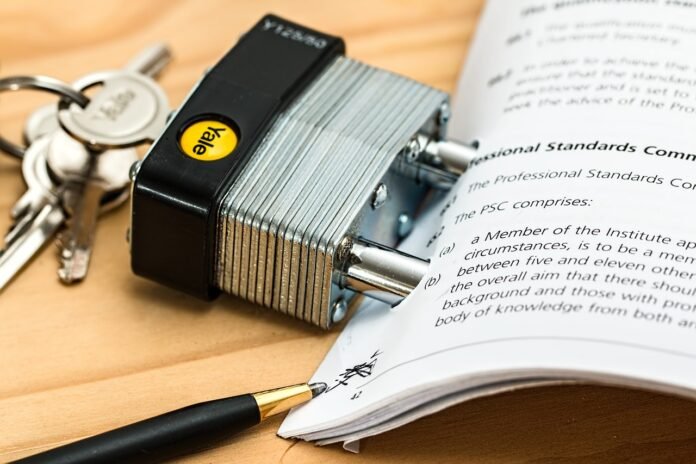Secured credit cards often get a bad rap, but they can be a powerful tool for building or rebuilding credit. If you’re struggling to get approved for a traditional credit card due to a limited or damaged credit history, a secured card offers a pathway to responsible credit use and improved financial health. This guide will delve into the world of secured credit cards, exploring their benefits, how they work, and everything you need to know to make an informed decision.
What is a Secured Credit Card?
Understanding the Basics
A secured credit card is a type of credit card that requires a cash deposit as collateral. This deposit acts as your credit line. For example, if you deposit $500, you’ll typically have a credit limit of $500. This collateral minimizes the risk for the credit card issuer, making secured cards accessible to individuals with low or no credit. Unlike prepaid debit cards, secured credit cards report your payment activity to the major credit bureaus, which is crucial for building credit.
How it Differs from Unsecured Credit Cards
The primary difference lies in the security deposit. Unsecured credit cards don’t require upfront collateral; instead, your creditworthiness is the determining factor for approval.
- Secured: Requires a security deposit, easier to get approved for with poor or no credit.
- Unsecured: No security deposit needed, approval depends on your credit score and history.
Because secured cards mitigate the lender’s risk, they often have different features and terms than unsecured cards geared toward individuals with excellent credit.
Benefits of Using a Secured Credit Card
Building or Rebuilding Credit
This is the primary benefit. Consistent and responsible use of a secured credit card is a potent way to establish or repair your credit history. Paying your bills on time and keeping your credit utilization low (ideally below 30%) demonstrates responsible financial behavior to credit bureaus.
- Example: John had a history of late payments that severely damaged his credit score. He got a secured credit card, made all his payments on time for 12 months, and saw his credit score increase significantly, allowing him to qualify for a better car loan.
Access to a Line of Credit
Even with a poor credit score, a secured credit card provides access to a line of credit, which can be helpful for emergencies or making online purchases. While your credit limit is tied to your deposit, it still functions as a credit card, allowing you to build credit while spending.
Financial Discipline
Using a secured credit card encourages mindful spending and budgeting. Knowing that you’re spending your own money (the security deposit) can help you control your spending habits and avoid accumulating debt.
- Tip: Treat your secured credit card like a debit card – only spend what you can afford to pay back in full each month.
Choosing the Right Secured Credit Card
Comparing Fees and Interest Rates
Not all secured credit cards are created equal. Pay close attention to the annual fees, monthly fees (if any), and interest rates (APR). Look for cards with low or no annual fees, as these can eat into your available credit. The APR is less important if you plan to pay your balance in full each month.
- Example: Card A has a $39 annual fee and an APR of 22%. Card B has no annual fee and an APR of 24%. If you plan to carry a balance, Card A might be better, but if you pay in full, Card B is the superior choice.
Reporting to Credit Bureaus
Ensure the secured credit card reports to all three major credit bureaus: Experian, Equifax, and TransUnion. This is crucial for building or rebuilding your credit score. This information should be readily available on the credit card issuer’s website or in the card’s terms and conditions.
Graduation to an Unsecured Card
Some secured credit cards offer the possibility of “graduating” to an unsecured credit card after a period of responsible use. This means you can get your security deposit back and continue building credit with an unsecured line of credit. Inquire about the graduation process and requirements before applying.
- Question to Ask: What are the criteria for graduating to an unsecured card? How long does it typically take?
Applying and Managing Your Secured Credit Card
Required Documentation and Deposit Amount
Applying for a secured credit card typically involves providing basic personal information, such as your name, address, Social Security number, and income. You’ll also need to provide the required security deposit, which can usually be done online or by mail. Deposit amounts usually range from $200 to $500, but some cards may require larger deposits.
Responsible Card Usage
The key to success with a secured credit card is responsible usage. This includes:
- Making on-time payments: Payment history is the most significant factor in your credit score. Set up automatic payments to avoid missing due dates.
- Keeping your credit utilization low: Aim to use no more than 30% of your credit limit. For example, if your credit limit is $500, try to keep your balance below $150.
- Monitoring your credit report: Regularly check your credit report for errors and signs of fraud. You can obtain a free copy of your credit report from each of the three major credit bureaus annually through AnnualCreditReport.com.
Conclusion
Secured credit cards are a valuable financial tool for those seeking to establish or improve their credit. By understanding how they work, choosing the right card, and using it responsibly, you can take significant steps towards a brighter financial future. While requiring a security deposit, the long-term benefits of building a positive credit history far outweigh the initial cost. Remember to prioritize on-time payments and low credit utilization to maximize your credit-building potential.


